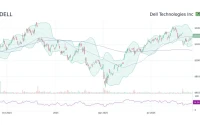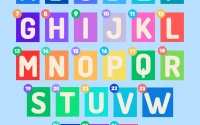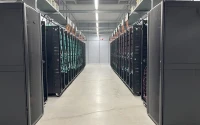The 'AI Copyright' Question Is a Trap. Here's the Real Fight.
Everyone needs to shut up about whether a robot can be an “author.” Seriously. I keep seeing these endless, circular debates online and in think pieces, all wrestling with the big philosophical question: can a large language model’s output be copyrighted? It’s the kind of navel-gazing, dorm-room-at-3-AM argument that tech companies absolutely love to see us having.
Because while we’re all stroking our chins and debating the ghost in the machine, we’re missing the heist happening in broad daylight.
This whole "AI authorship" debate is a trap. It's a shiny object designed to distract us from the actual, far more important battle. It’s a neat little puzzle. No, 'neat' doesn't cover it—it’s a deliberately crafted maze designed to keep lawyers, artists, and journalists occupied for the next decade while the real power grab solidifies. Who benefits when the smartest people in the room are stuck debating how many angels can dance on the head of a silicon pin? Not you, and definitely not me.
The US Copyright Office is already tying itself in knots over this. They’ve put out "guidance" stating that a work generated entirely by AI without human input can't be copyrighted. But if there's "sufficient human authorship," then maybe it can. You can almost hear the sound of a thousand corporate lawyers simultaneously licking their chops. The air crackles with the promise of billable hours, all spent defining what “sufficient” means. It’s a swamp. A beautiful, profitable swamp for them, and a quagmire for the rest of us.
The Heist Happening in Plain Sight
Let’s be real. The fight isn’t about what comes out of the machine. It’s about what went in.
Think of the entire public internet—every blog post I’ve ever written, every photo your cousin posted, every brilliant piece of art on DeviantArt, every line of open-source code on GitHub—as a vast, rich landscape. These AI companies are not pioneers or innovators in the way they sell it. They are strip-mining operations. They have scraped the entirety of human culture, shoveled it into a furnace, and melted it down into a raw, probabilistic slurry they call a "model."

They call it "training data," which sounds so sterile and scientific, but what it really is… it’s our stuff. It's the digital embodiment of millions of hours of human labor, creativity, pain, and joy. All taken without permission, without credit, and certainly without compensation. It's buried in the same garbage ToS agreements none of us read when we sign up for a new photo-sharing app, my biggest pet peeve. They have a digital license to do whatever they want with our work, apparently.
This is the real fight. Not whether the robot's derivative collage is "art," but the fact that the collage is made from stolen paint. The model spits out something that looks new, but its DNA is a mosaic of a million uncredited pieces. They’ll tell you it’s “transformative.” I call it industrial-scale money laundering for intellectual property. This ain't creation; it’s just incredibly sophisticated mimicry. Offcourse, they won't ever admit that.
What happens when you can prompt a machine to create a "Stephen King-style" horror story or a "Van Gogh-style" painting? It’s not a testament to the machine’s genius. It’s proof of its theft. The machine “knows” Stephen King’s style because it ingested every word he ever published. It’s not inspiration; it’s digital plagiarism at a scale so massive we can’t even comprehend it.
The Great Devaluation
So why are they so eager for us to debate "AI authorship"? Because if they can get us to legitimize the output, it helps them whitewash the sins of the input. If an AI-generated image can be copyrighted, sold, and treated as a legitimate asset, then the questionable origins of that asset suddenly become a lot less important. It's a classic misdirection. Look at the magic trick over here, so you don't see us picking your pocket over there.
The end goal here isn’t to create a new form of art. The goal is to devalue human labor to as close to zero as possible. Why hire a graphic designer for $500 when you can get a "good enough" logo for a 50-cent API call? Why commission a writer for an article when you can have a model churn out a thousand listicles in a minute?
This isn't a future that empowers creators. It’s a future that turns them into low-paid prompt engineers and content curators, sifting through the machine’s slop for the one or two usable nuggets. It hollows out the creative middle class, leaving only the giant tech platforms and a handful of mega-successful human creators who have become brands unto themselves.
Or maybe I'm just a Luddite yelling at the sky. Maybe this is just "progress" and the cost is the creative soul of, well, everyone. But I doubt it. This feels different. This feels like a land grab, and we're the ones getting fenced out of our own property.
They're Not Building a God, They're Building a Lever
Let's drop the sci-fi fantasies. The executives pushing this stuff aren't trying to create a sentient being or unlock the secrets of the universe. They are building a lever. A lever of unprecedented power, designed to pry creative professionals away from their value. By commoditizing the act of creation through mass data ingestion, they gain leverage over every writer, artist, musician, and programmer on the planet. The real fight isn't about the copyright status of a robot's poem; it's about whether human creativity has any economic future at all.









